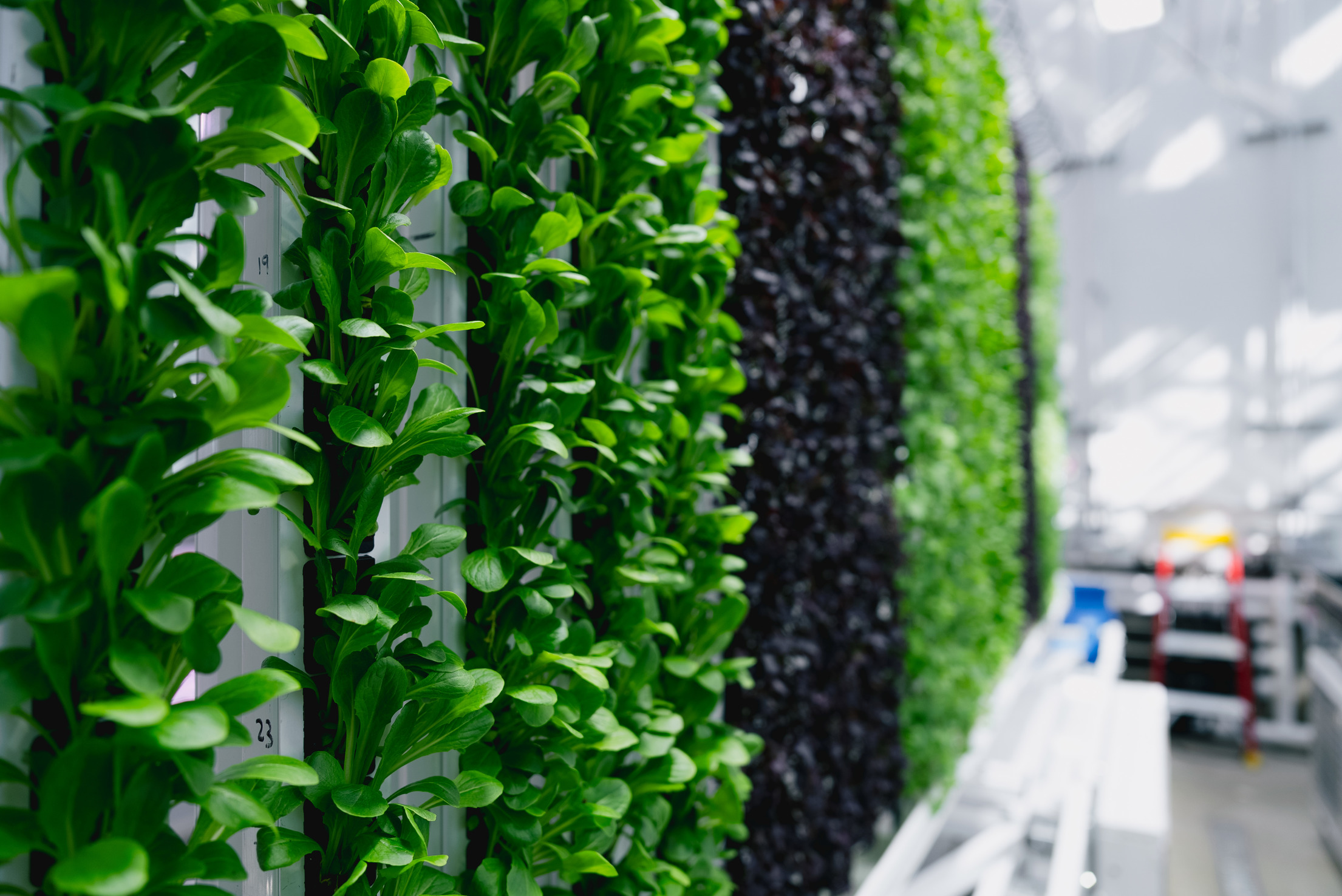Goals
Innovations
Advance fundamental knowledge and achieve CEA technology innovations through transdisciplinary collaborations to promote sustainable and scalable CEA for producing high-productivity and nutritious crops while minimizing operational costs.
Education
Build transdisciplinary CEA education programs and create diverse and culture-inclusive learning environments for CEA workforce development.
Commercialization
Ensure a successful pathway from fundamental research to commercialization through key stakeholder engagement.
Outcomes and accomplishments
Aligning Education, Workforce Development and Industry to Support Wyoming’s Economic Development Needs
The Wyoming Innovation Partnership (WIP) represents the Wyoming government's effort to align education, workforce development, and industry to support the needs of the State economy. Close to $1M was allocated specifically to support Controlled Environment Agriculture during the Phase II (2023-2024). The program purchased phenotyping instrumentations and secured expert personnel at the Plant Growth and Phenotyping Facility.
Developing an interdisciplinary course in controlled environment agriculture, WIP’s support created a new course, titled CEA Research and Internship - AGRI 4990 – 01. This highly cross-disciplinary research class, meant to provide students with basic knowledge of controlled environment agriculture while providing them with a 6-week research opportunity in a UW lab and 2 weeks of internship at Plenty Unlimited Inc. First piloted in the summer of 2024, students engage with multiple instructors from 6 different departments including Plant Science, the Science Initiative, and Botany, to Electrical Engineering, Accounting & Finance, Family & Consumer Science, Engineering and the School of Computing.
Wyoming Innovation Partnership
Controlled Environment Agriculture Research Experiences for Undergraduates (CEAfREU)
The goal of this Research Experience for Undergraduates (REU) program, sponsored by
National Science Foundation, is to broaden the participation of Native American, female,
first-generation, and other underrepresented students to engage in cutting-edge research
on controlled environment agriculture (CEA). Student trainees will advance interdisciplinary
research focused on resource efficiency while maximizing crop growth in CEA. Mentoring,
technical skills development, and other professional training are also provided. Students
will combine knowledge of indigenous food with modern technologies in CEA to bridge
generational gaps and promote fresh and healthy produce in tribal communities. A cohort-based
approach will promote teamwork, leadership, and peer teaching while inspiring and
preparing Native American students to advance new technologies that support the future
of agriculture. Students will pursue one of the three research themes: (1) modeling
and operation for resource-efficient CEA, (2) computer vision for monitoring crop
growth and analyzing nutrient contents in CEA, and (3) a CEA feasibility study for
tribal communities. REU students will gain firsthand experience through site visits,
semi-interviews, and live discussions with industry partners. Actively engaging industry
partners and better understanding stakeholder perspectives is expected to enrich student
learning, ultimately benefiting their professional and career development.
Learn more about this award.
Applications are due April 1st, 2025.
Harnessing Controlled Environment Agriculture to Secure Sustainability and Economic Growth
In August 2024, the National Science Foundation (NSF) announced the University of Wyoming’s engagement in a $16 million grant led or supported by the University of New Mexico This funding is a part of a $77.8 million investment from NSF in projects that will build climate resilience capacity as part of the Established Program to Stimulate Competitive Research (EPSCoR). The $2.08 million in funding coming to the University of Wyoming will lead the project’s core science components, characterizing how the environment, plants and microbes interact in hydroponic systems and impact crop yield. This work includes partnerships across New Mexico, South Dakota and Wyoming.
UW will lead the project’s core science components, which examine how plants and microbes interact in hydroponic systems and affect crop yield in different environmental settings. Carmela Rosaria Guadagno, director of the UW Plant Growth and Phenotyping Facility in the Science Institute and associate director of the Controlled Environment Agriculture (CEA) Center, will lead UW’s effort as primary investigator. UNM will oversee the socioeconomic aspects of the project, assessing the drivers and impacts of CEA on tribal communities.


